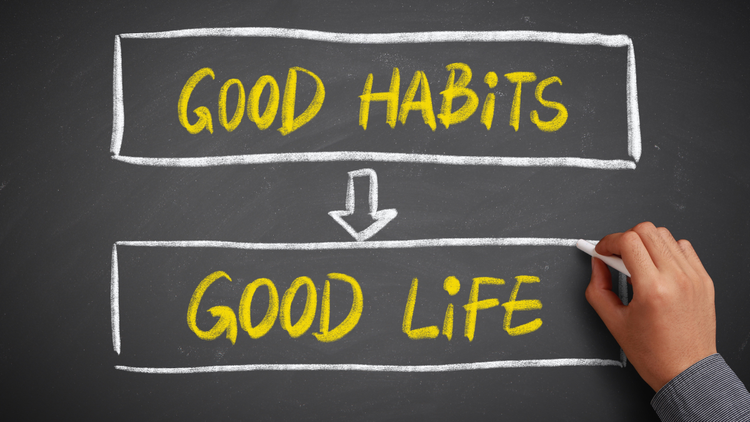How to Reclaim Focus When Your Brain Feels Scattered

You sit down to start something important.
The document’s open, your coffee’s hot, and you’re ready to begin.
Five minutes later, you’ve checked your email twice, skimmed a few headlines, switched tabs without knowing why, and now you’re staring at the screen again, unsure how you even got here.
Sound familiar?
You’re not lazy. You’re not broken. Your brain is scattered. And in this world, that’s not a personal failing. It’s a natural response to constant distraction, noise, and overwhelm.
Why focus feels so hard right now
We like to think of focus as a matter of willpower. But the truth is, attention is a limited resource, and modern life drains it fast.
Every day, your brain is bombarded with stimulation. Notifications, group chats, multitasking, tab-switching, rapid-fire information. You’re forced to make hundreds of small decisions just to get through the morning. Even when you’re “resting,” your phone is usually within reach.
That constant input doesn’t just distract you. It fragments your attention. It floods your brain with unfinished loops, micro-stressors, and split-second task switching. Eventually, you reach a point where even simple focus becomes hard to access.
If you’ve felt foggy, forgetful, irritable, or stuck in a cycle of shallow productivity, your system might be overloaded.
When your brain starts buffering
There’s a particular kind of burnout that doesn’t feel dramatic. It feels like fuzziness. You know what you want to say, but the words don’t come. You know what you need to do, but you keep drifting away. You try to push through, but your thoughts feel like they’re slipping through your fingers.
This is cognitive overload. And the more you push, the worse it gets.
It’s a sign that your brain is full. Not with deep thought, but with fragments. Half-finished conversations. A list of things to remember. That one thing you meant to do earlier. The sense that you’re always behind.
Focus isn’t just a productivity skill. It’s a mental health indicator.
So, how do we reclaim it?
Focus doesn’t come from trying harder. It comes from removing the obstacles in your way. And often, the biggest obstacles are invisible: mental clutter, emotional fatigue, and overstimulation.
Let’s walk through a few ways to reset your attention — gently, sustainably, and realistically.
1. Clear mental clutter before you begin
Trying to focus with a full mental inbox is like trying to write a speech while ten people are shouting in your ear. Your brain can’t prioritise what matters if it’s busy holding onto everything else.
One of the simplest ways to reset is to externalise the noise. Write down everything on your mind — no filters, no order, just out. Even a five-minute brain dump can free up mental bandwidth.
Once you’ve cleared the clutter, pick one small task to start. Not the most important one. Just the most accessible.
2. Finish one thing before you start the next
We underestimate how much unfinished tasks pull on our attention. Every open loop — from that email you half-composed to the laundry sitting in a basket — takes up space in your working memory.
Before you dive into focused work, take a moment to tie up something small. It doesn’t need to be big. Close a tab. Put something away. Send a short reply. Your brain is more willing to settle into focus when it knows you’ve cleared a little room.
This isn’t about being tidy. It’s about creating a signal that it’s safe to concentrate.
3. Set a container, not a finish line
Instead of telling yourself, “I need to finish this project,” try: “I’ll work on this for twenty-five minutes.”
Time-boxing your focus shifts the goal from completion to progress. It lowers the barrier to starting, gives your brain a clear endpoint, and often builds momentum naturally.
Even if you only manage one focused block today, that’s a win. It’s far more effective than sitting in front of a screen for two hours, half-working and half-scrolling.
4. Make focus feel familiar again
Your environment teaches your brain how to behave. If you constantly multitask in the same space, your brain associates that space with fragmentation. One way to rebuild focus is to give yourself a small, dedicated zone for it — even if it’s just a particular chair, corner, or time of day.
Remove visual and auditory clutter. Put your phone out of sight. Light a candle or put on a specific playlist. These cues tell your brain, “This is where focus happens.”
It sounds simple. It works.
5. Give your brain space to recover
If your thoughts feel scattered, more input won’t help. You need white space. Not just sleep, but intentional moments of low stimulation. No screens. No talking. No multitasking.
Take a short walk without your phone. Sit outside for five minutes. Let your mind wander without trying to capture or fix anything.
Your brain doesn’t just need silence. It needs the absence of expectation.
What if it’s still not working?
If you’ve tried simplifying, resetting, and setting boundaries, but still feel like your focus is fractured, it might be time to look deeper.
Difficulty concentrating can be a symptom of burnout, anxiety, depression, or neurodivergence. If the fog doesn’t lift after rest or routine changes, it’s worth speaking to someone who can help.
There’s no shame in needing support.
Focus isn’t something you should have to fight for every day.
Final thought: Focus is something you can rebuild
You don’t need a perfect routine. You don’t need to force yourself into productivity. You just need to understand what your attention is asking for — and start giving it a little more care.
Reclaiming focus is possible. But it starts with something small. A pause. A breath. A reset.
Best of all, you can begin right now!
—MRB
My goal is to help people thrive in a complex world. While I write as a psychologist, this content is general in nature, does not constitute a therapeutic relationship, and is not a substitute for personalised mental healthcare advice. Further, some posts may include affiliate links to resources I recommend. Read my full site policy here.




Member discussion